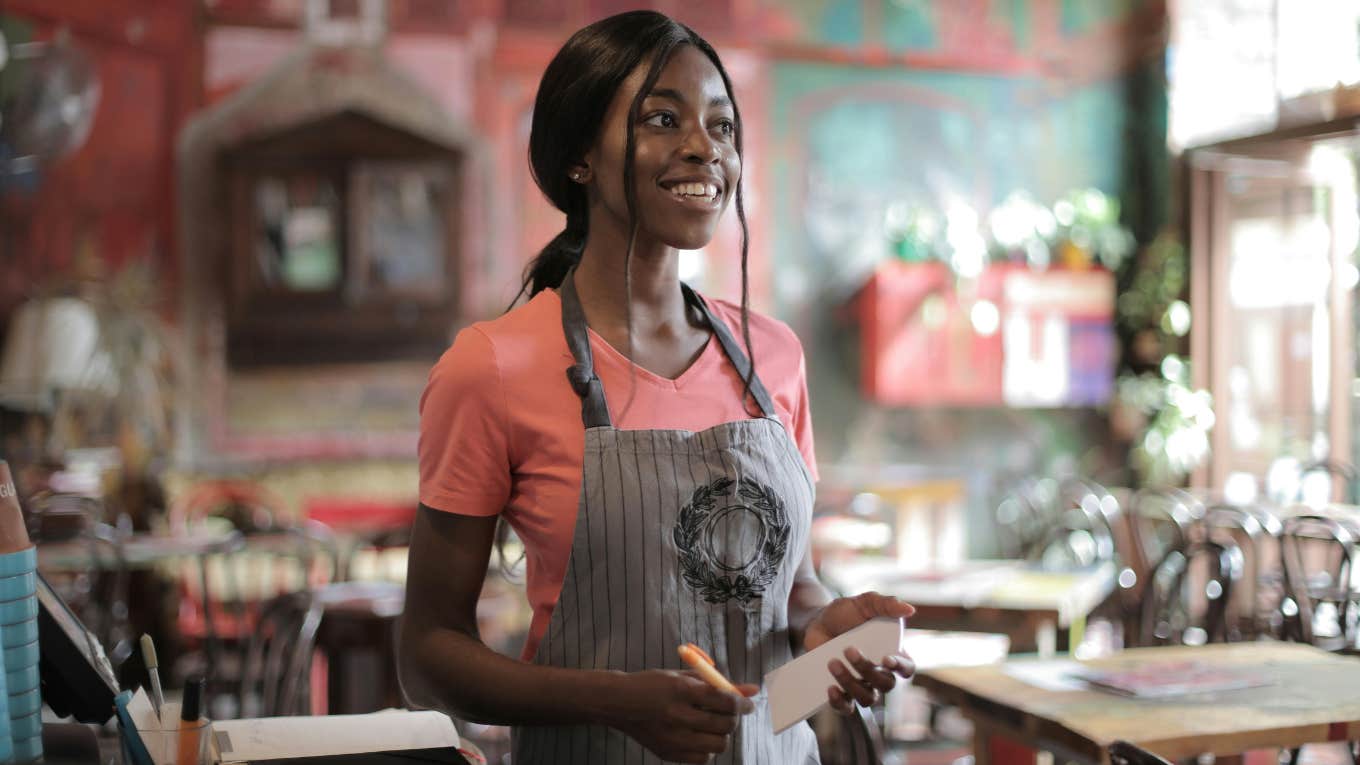Server Refuses To Give Refills To Customers Who Stay To Talk After They're Done Eating — ‘Get Up & Go Talk In Your Living Room’
Talk isn't cheap, especially if you're taking up a table at a restaurant.
 Andrea Piacquadio / Pexels
Andrea Piacquadio / Pexels It’s a commonly-held belief that the customer is always right, but one service industry worker maintains that there’s one thing customers do that’s very, very wrong.
She shared her hot take from deep inside the walk-in cooler, expressing her frustration with one particular habit that customers have.
The server explained why she refuses to give refills to customers who stay and talk after they’re done eating.
“I don’t know who needs to hear this, but if you go out to eat at a restaurant, do not sit at the [expletive] table two hours after you already got your [expletive] check to talk to your [expletive] sister, wife, grandma,” the agitated server said.
The server shared the number one thing that makes her feel crazy when it comes to customer service: Being asked to give refills after a meal is over.
“Get the [expletive] up and go talk in your [expletive] living room, cause [expletive] you’re [expletive] with my money,” she concluded.
 Ketut Subiyanto / Pexels
Ketut Subiyanto / Pexels
The server had a fairly valid point, as workers in her position get paid for each table they tend to, meaning that the longer people sit and gab, the fewer tables she turns over in a night and the less money she makes.
“Other people need to sit there,” she continued. “I’ve missed like, four rotations ‘cause you wanna sit there and talk.”
The server urged customers to continue their post-dinner conversations outside of the restaurant itself.
She offered various solutions to where customers could talk that are not at her table: in their cars, at home, on their phones, or on FaceTime.
“You don’t have any more food to eat,” she insisted, explaining that she won’t give out refills to customers who’ve finished their meals and paid.
In many ways, her argument makes a lot of sense. Customers tip a percentage on the price of the meal they’ve eaten, not on how long they sit at a table for.
If a table has finished eating and paid their bill yet continues to sit there, taking up valuable real estate in a busy restaurant, the server isn’t being compensated for that time.
“I had to come in the cooler and talk about this. That’s where I am,” she said, referencing her own frustration level and the fact that she was ranting in a walk-in fridge about customers who just don’t seem to get it.
“Please, please get up,” she said. “Once you pay, get the [expletive] up quickly. Make it quick. Thank you.”
 Tim Douglas / Pexels
Tim Douglas / Pexels
One seemingly simple solution to this predicament would be to pay servers a living wage.
Because servers are forced to make a living hinging on the generosity of strangers, to them, time is literally money.
It’s not really fair to servers, at all, for customers to sit at a table for hours on end without paying them for that wasted time, time that could have been spent serving another table for more money.
The service industry is a hustle, if nothing else— A cutthroat business where each server is just trying to get through the night and make enough money to support themselves, while wrangling tables of strangers who just want to talk and not necessarily tip as generously as they should.
Alexandra Blogier is a writer on YourTango's news and entertainment team. She covers social issues, pop culture, and all things to do with the entertainment industry.

